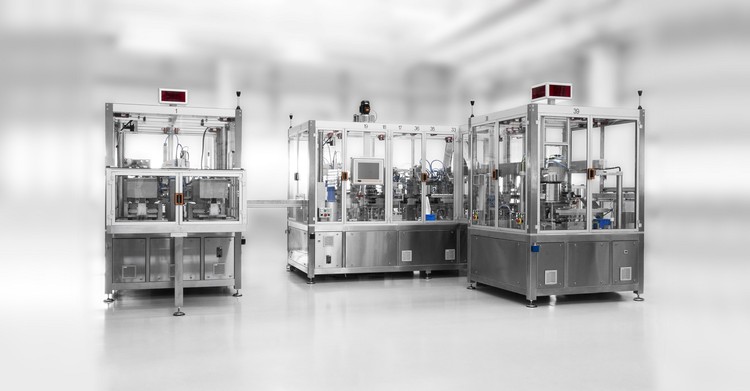- Home
- News & Press
- AUTOMATIC ASSEMBLY SOLUTIONS IN CLEANROOMS: ADVANTAGES AND DISADVANTAGES
AUTOMATIC ASSEMBLY SOLUTIONS IN CLEANROOMS: ADVANTAGES AND DISADVANTAGES

11-07-2024
In the medical industry, the production of single-use plastic devices in cleanrooms requires high standards of quality, precision, and sterility. Automatic assembly presents itself as an effective solution to optimize this process, offering numerous advantages over manual production.
Advantages of automatic assembly:
- Increased quality: Automation guarantees greater precision and repeatability in assembly, minimizing human variability and the risk of errors.
- Increased productivity: Automatic systems can work 24 hours a day, 7 days a week, without breaks, significantly increasing production compared to manual labor.
- Reduced costs: Automation can reduce labor costs, especially in high-wage countries, as well as costs associated with non-conforming products and claims.
- More ergonomic work environment: Workers are relieved of repetitive tasks, improving ergonomics and reducing the risk of injury in some cases.
- Traceability and data control: Automatic systems can record and track each step of the assembly process, providing valuable data for quality control and production management.
Disadvantages of automatic assembly:
- High initial costs: The implementation of automatic assembly systems requires a significant initial investment in machinery, software, and personnel training.
- Maintenance and support: Automatic systems require regular maintenance and specialized technical support, which can generate additional costs.
- Lack of adaptability to complex tasks: Some complex or delicate assembly operations may still require manual intervention.
In the field of medical products for infusion therapy and dialysis, automatic assembly offers value to produce:
- Catheters: Automation guarantees high precision in tip forming, tubing printing, and punching techniques, crucial elements for the functionality and safety of catheters.
- Infusion sets: The automatic assembly of components such as connectors, tubing, and drip chambers ensures the correct configuration of the finished product.
- Dialysis lines: The creation of this product is particularly complex, requiring automatic assembly of the various semi-finished products first and manual final assembly.
Ultimately, the choice between automatic assembly and manual production depends on various factors, including production volume, product complexity, costs, and available resources. For medical products for infusion therapy and dialysis, automation represents a valid option to improve quality, productivity, and safety, making it a strategic choice especially for companies with high production volumes.
A UNO TEC has extensive experience in the design and manufacture of customized automatic machines for the assembly of single-use plastic medical devices in cleanrooms.
Do you want to find out how we can help you in this process? Contact us to learn more.